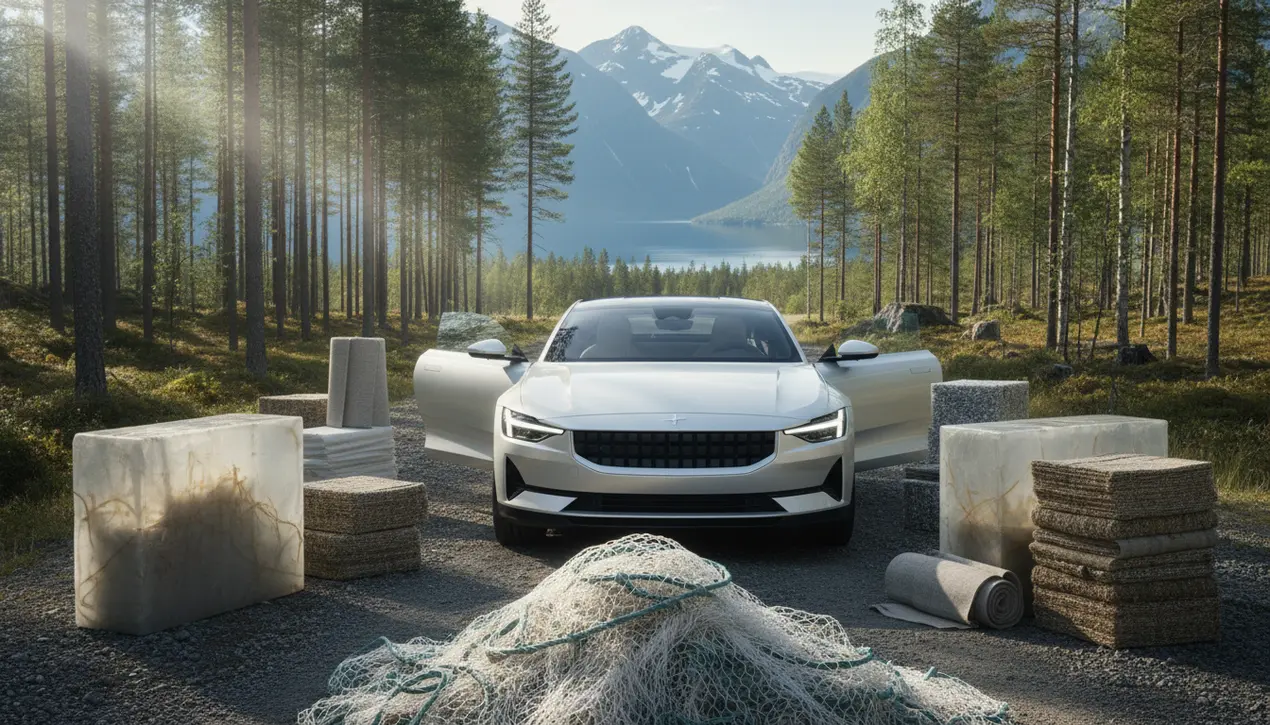
Otherauto & mobilityElectric Vehicles
The Polestar 5 Grand Tourer Blends Scandinavian Design With Sustainability
RA
Rachel Adams
5 hours ago7 min read3 comments
In an automotive landscape increasingly defined by its environmental footprint, the arrival of the Polestar 5 Grand Tourer is not merely another product launch; it is a profound statement of intent, a tangible shift from aspiration to execution in the realm of sustainable mobility. As a biologist with a focus on ecology, I see this not just as a new car, but as a potential keystone species in the ecosystem of our industrial future.The core revelation—that this is the first of its kind to be produced using a significant portfolio of sustainable materials—demands a deeper examination beyond the press release. This isn't a token gesture of recycled plastic trim.We are talking about a fundamental re-engineering of the supply chain, a move that challenges the very DNA of automotive manufacturing, which has historically been one of the most resource-intensive and polluting sectors on the planet. The lifecycle of a conventional vehicle, from the energy-intensive mining of ores for steel and aluminum to the petrochemical-derived plastics and toxic paints, leaves a scar that its zero-tailpipe-emissions operation can never fully erase.Polestar's ambition, therefore, to tackle this embedded carbon head-on, is arguably as revolutionary as the switch from internal combustion to electric powertrains. We must consider the materials themselves: flax-based composites for interior panels and structural components, which sequester carbon during growth and require a fraction of the energy to process compared to fiberglass; recycled plastics that divert waste from our already overflowing oceans and landfills; and sustainably sourced wool and vinyl that forego the harsh chemical processes of traditional leather tanning and synthetic production.This holistic approach echoes the principles of a circular economy, a concept we in environmental science have championed for decades, where waste is designed out and materials are kept in use indefinitely. The implications are staggering.If a premium manufacturer like Polestar, owned by Volvo and Geely, can prove the commercial and technical viability of such a model, it creates a powerful precedent. It forces the hand of legacy automakers, who can no longer hide behind the 'green' facade of their EVs while ignoring the environmental devastation wrought by their production lines.It raises critical questions for consumers and regulators alike. Should a vehicle's environmental rating be based solely on its operational emissions, or must it now encompass a full lifecycle analysis, from cradle to grave? The Polestar 5, therefore, becomes a test case, a rolling laboratory whose success or failure will influence policy and consumer behavior for years to come.However, this path is fraught with challenges. Scaling these sustainable material supply chains to meet global demand is a Herculean task.The cost premiums, at least initially, will be substantial, potentially limiting this eco-conscious revolution to the luxury segment where the Polestar 5 resides. There is also the question of durability and performance; can a flax composite match the crashworthiness of carbon fiber? Can these new interiors withstand a decade of wear and tear? These are not trivial concerns, and they will require transparent, long-term data from Polestar to assuage.Yet, the alternative—continuing on our current trajectory—is untenable. The Intergovernmental Panel on Climate Change (IPCC) reports continue to paint a dire picture, and every industry must undergo a radical transformation.The Polestar 5 Grand Tourer, with its blend of Scandinavian design elegance and a deeply integrated sustainability ethos, is more than a car. It is a beacon, a proof-of-concept that beauty and performance need not be sacrificed at the altar of environmental responsibility.It represents a crucial, albeit early, step toward reconciling our desire for technological progress with the imperative to preserve the fragile biosphere that sustains us all. The race is no longer just about who can build the fastest EV, but who can build the most intelligent, responsible, and truly clean one from the ground up.
#featured
#Polestar 5
#Grand Tourer
#electric car
#sustainable materials
#Scandinavian design
#next-generation
Stay Informed. Act Smarter.
Get weekly highlights, major headlines, and expert insights — then put your knowledge to work in our live prediction markets.
Comments
Loading comments...
© 2025 Outpoll Service LTD. All rights reserved.